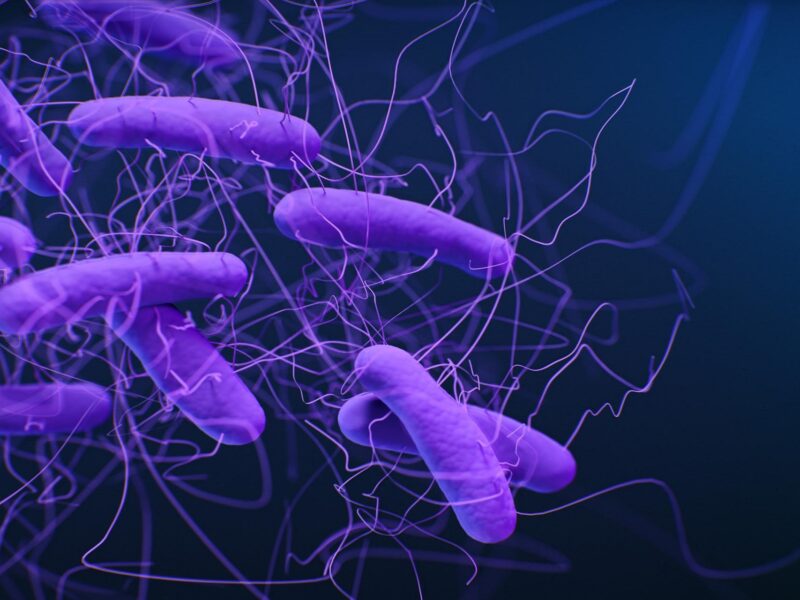In this episode of Conversations in Healthcare, Dr. Tim Guilliams discusses Healx’s innovative approach to tackling rare disease drug discovery.
As part of a partnership with OnHelix, Mike Ward, Global Head of Life Sciences and Healthcare, Thought Leadership at Clarivate™, recently interviewed Dr. Tim Guilliams, the co-founder and CEO of Healx.
Healx is an artificial intelligence-powered technology company that’s dedicated to helping rare disease patients access life improving treatments.
Mike and Tim discuss the company’s innovative approach to drug discovery, choosing which rare diseases to target and how patients are shaping their priorities.
Mike Ward:
Healx is an AI-powered tech company with a focus on finding new therapies to treat rare diseases. What inspired you to create a healthcare-focused AI company, and why the focus on rare diseases?
Dr. Tim Guilliams:
When I finished my PhD at Cambridge in 2013, there were a few things that happened. The first thing was for me to meet my co-founder David Brown who has a very strong background in drug discovery. We had similar ideas of how we could try and improve the drug discovery process by using machine learning. Speaking to Dave, it was clear that there were many frustrations across the decades that he worked in drug discovery and that we could improve that by using technology.
The second thing that happened was we met a rare disease parent called Nick Siro. He’s local, and he has two children with an ultra-rare disease called black bone disease. At the time, he was trying to repurpose a drug as a cure for his kids. We thought he was really ingenious because it’s an ultra-rare disease, so there’s not many people working on it and there’s no drugs being approved.
Nick managed to identify that the molecule, which was used for plant purposes, acted on the same enzyme that his children had the mutation on. That’s when we realized the power to do these basically at scale in a different way. Maximizing the value of existing treatments for rare diseases and also we realized how big this therapeutic unmet need is. You have 7,000 rare diseases and 95% don’t have an approved treatment today. You can’t ask all those patients and families to wait 10 to 15 years to potentially have a treatment. You need to approach this in a different way. That’s why we believe technology can help do this at a different scale, different speeds and have a much bigger impact.
Mike Ward:
You set the company up nearly seven years ago. Can you describe what progress you have made that validates the use of artificial intelligence or machine learning in the drug discovery process for rare disease treatment.
Dr. Tim Guilliams:
We’ve launched 17 programs and the most advanced one is starting phase 2A clinical trial this summer. That’s on fragile X syndrome. That will be a combination therapy trial, adaptive clinical trial design, which is a great validation for our approach and technology. The other programs we’ve launched run across rare neuro, respiratory, kidney, oncology, neuromuscular, and so far in all the programs that we started, we’ve only had one where we didn’t manage to predict and identify active compounds. That has been an incredibly successful journey so far.
What’s very hard is that most severe diseases will actually need more than one mode of action or one drug to get the patient better. We focused heavily on predicting monotherapies, but also drug combinations. That’s very hard because if you look at combinations of two or three existing treatments, you have more than 10 billion possibilities per disease. How do you select the top 10, the top 20 that you want to test and move to the clinic? We’ve had an incredibly successful validation of our platform and approach. We’ve also managed to grow our team significantly. We’re now at about 87 people, and we’re continuing to grow. We’ve raised around $70 million so far. Everything’s coming together and we’ve made good progress.
Mike Ward:
The identification of the molecules that you’re looking at to develop as monotherapies or in combination, are these already existing drugs that you are looking to repurpose or is it potentially coming up with ideas for de novo synthesis of new molecules?
Dr. Tim Guilliams:
Our primary focus is on monotherapy drug redevelopment. Some of them are already approved. Some of them have passed the phase one clinical proof of concept. Then we also focus on combinations of those molecules together. The third arm is around molecule enhancements. You start from a molecule that has good enough properties and you enhance those properties. Those are the three activities we are looking into.
——————————————————————————————————–
The above is a partial transcript from this interview, additional questions discussed include:
- What is Healx’s business model?
- How do you ensure communication within the culture of the company?
- There are more than 7,000 rare diseases. How do you decide which ones you’re going to focus on?
- How are patients shaping your priorities?
- What is the status of the fragile x program?
- How do you see artificial intelligence and machine learning fitting into the drug discovery space?
Click here to listen to the full episode.
Want to stay up to date on the latest episodes and view past ones? Subscribe to Conversations in Healthcare.





